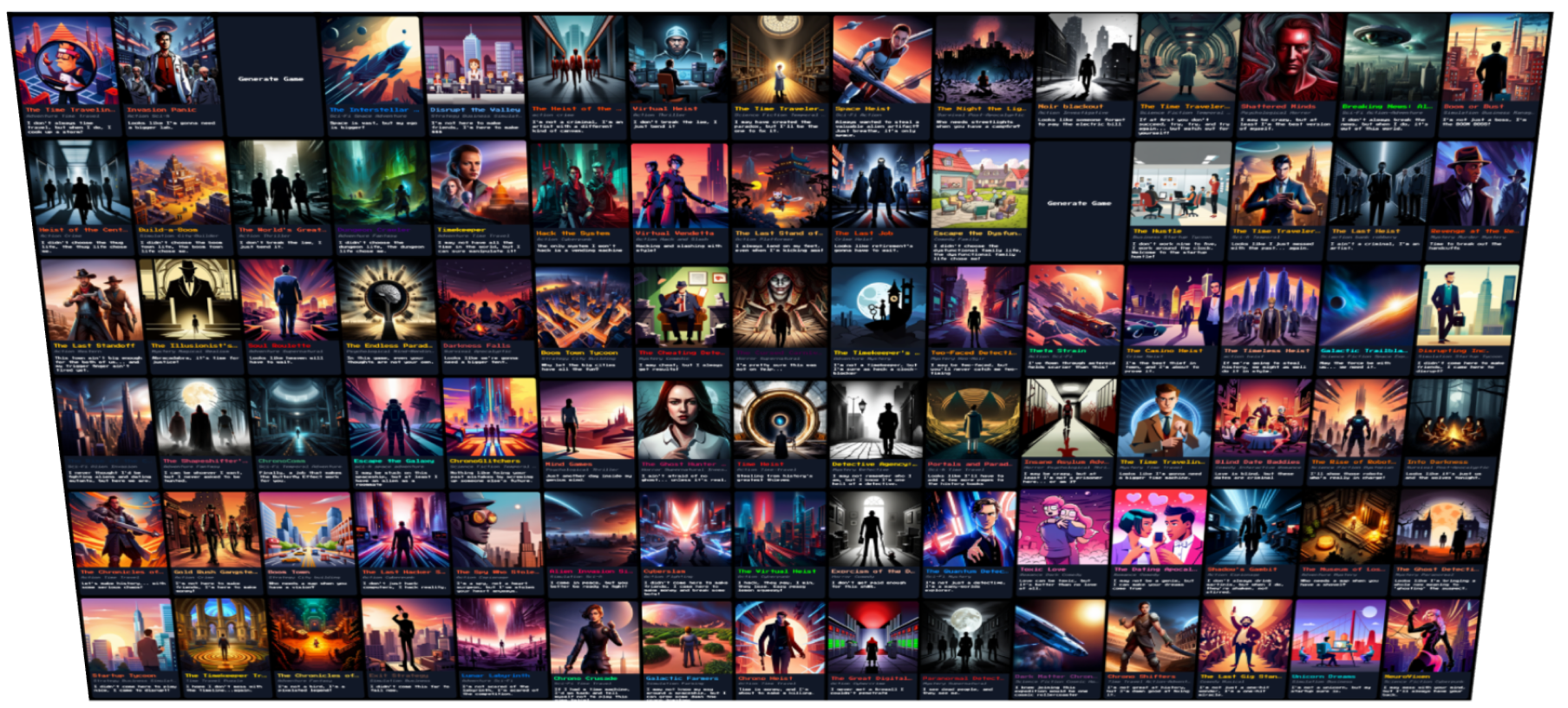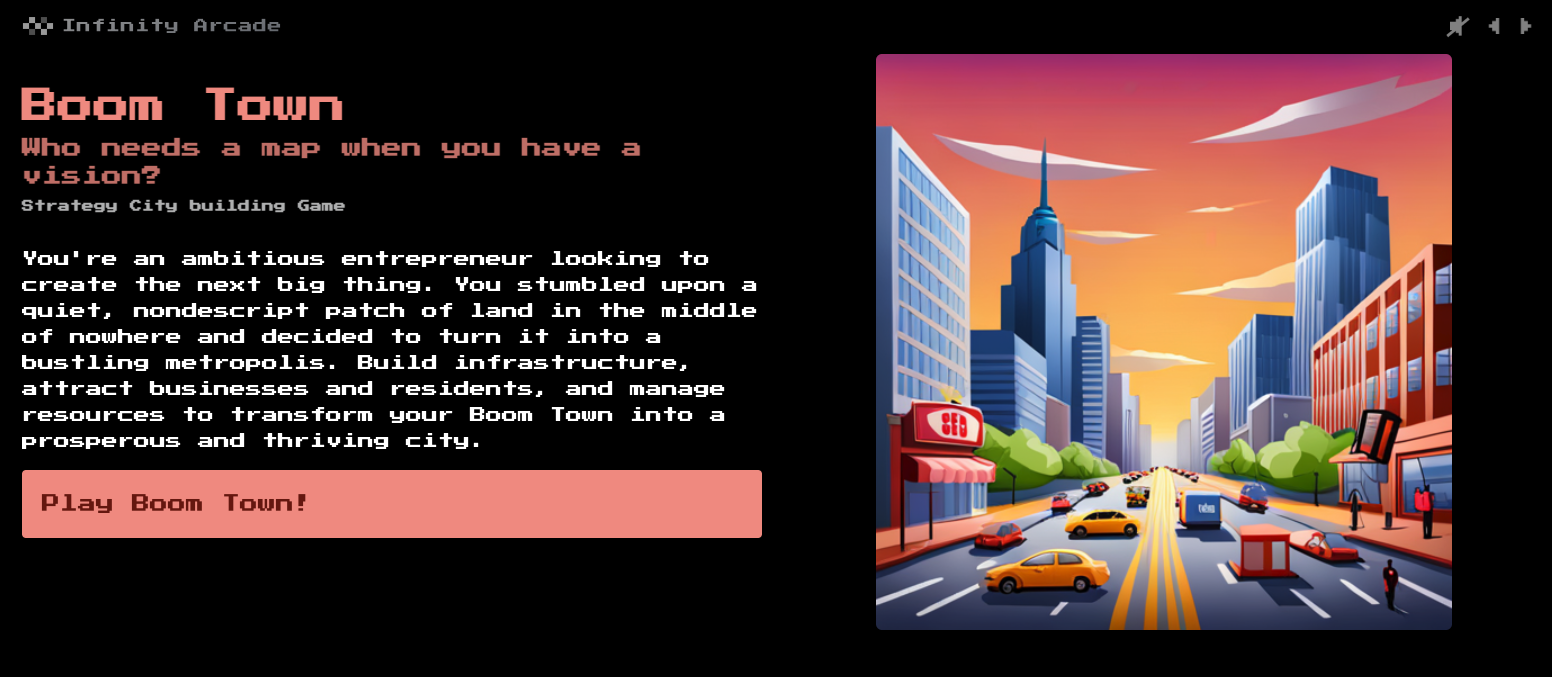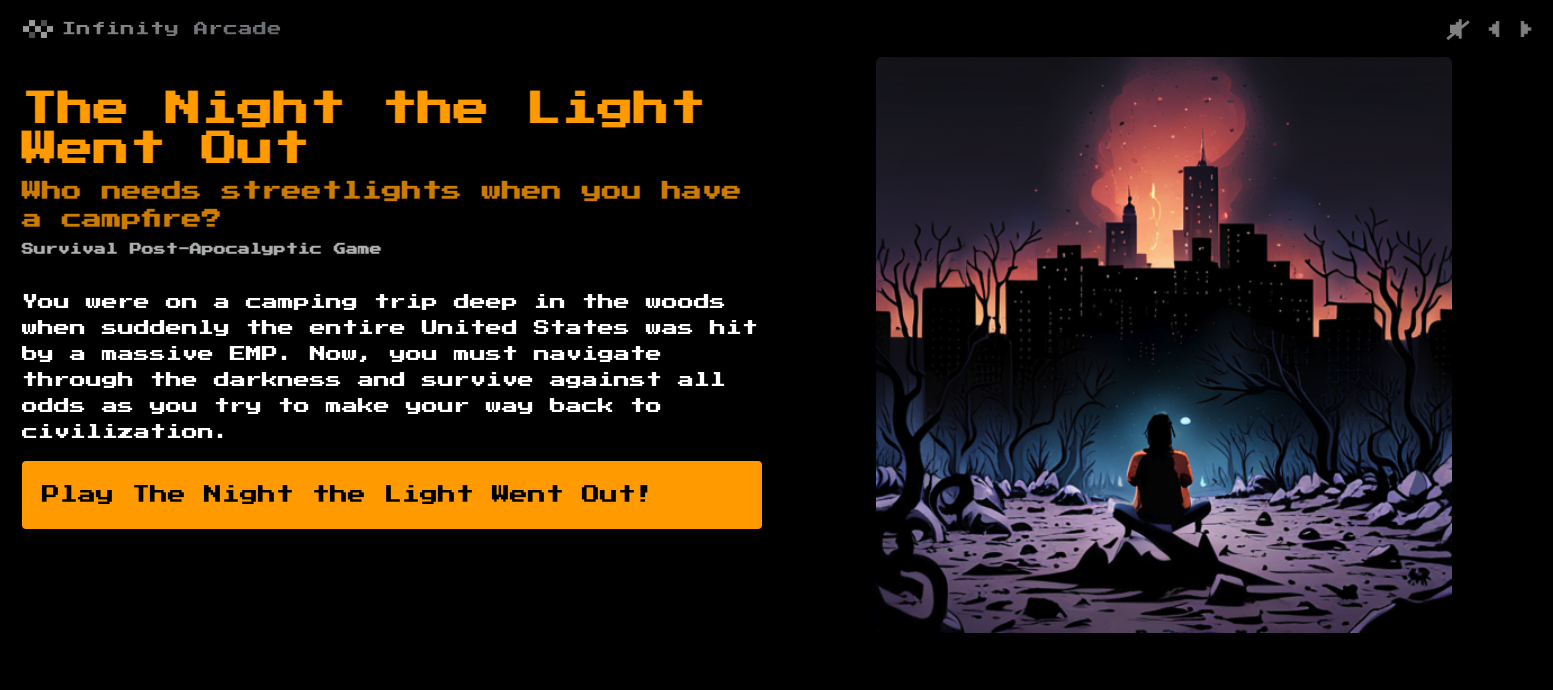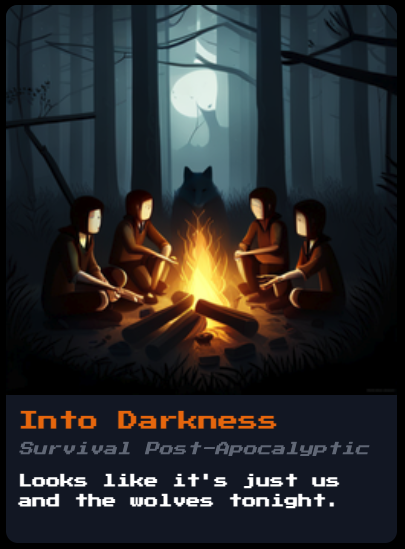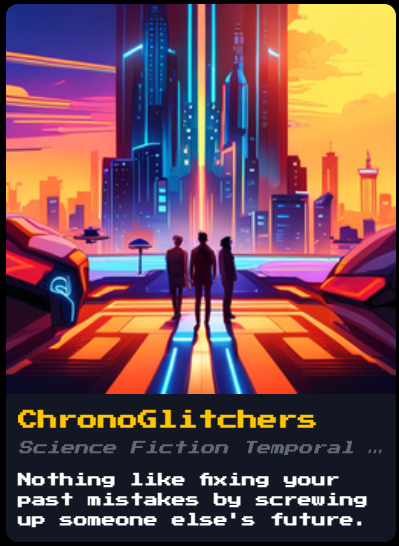Infinity Arcade and
Sparks of Generative Video Games
Large Language Models simulate entire games with a few keystrokes.
I asked my 11 year old nephew a question I already knew the answer.
Do you want to make a game?
In seconds we were playing Link and Mario fighting Bowser and some character I'd never heard of.
HP draining, spells casting, swords stabbing.
Buying myself time on GPT-4 credits, I copied the output from ChatGPT into Midjourney.1




Suddenly the text-based game was real—characters, fire crystals, dragon swords and all.
There was only one problem. We were losing, badly! The game was a little too difficult.
We broke out of the game's logic and asked for a special move, to call for backup. GPT-4 granted our wish, and with Zelda and Luigi on our side, we were able to defeat Bowser and Calamity Ganon—restoring peace to the Kingdom of Hyrule.
I'll remember it forever, not only because of the look on my nephews face, but because it reminded me of making my first video game—pure magic.
No Code Meets YOLO Code
A sufficiently advanced LLM can replace your text-based game engine.
You could build a game like people always have—managing the state explicitly.
Or you could just YOLO it into the LLM and hope for the best.
| Model | LLM Game Engine |
|---|---|
| GPT-4 | The best—a little slow and currently heavily quota'd. Strict ethics. |
| GPT-3.5-TURBO | Fast, can hallucinate game state, stories are ok. Strict ethics. |
| CLAUDE-1.2 | Suprisingly fast, good enough job managing game state, stories aren't very dynamic. Strict ethics. |
| Llama/Alpaca | Getting good fast, but not there yet. Loose ethics. |
LLMs are suprisingly good at generating interactive text games—and they're getting better every week.
But there's a big tradeoff.
Closed models like GPT-4 and CLAUDE refuse to let you offer nootropics to your startup employees or gamble the company stash on high-risk crypto.
Whatever you think about AI Safety, we're just trying to make a game here.
When I ask closed models like GPT-4 and CLAUDE how they feel, they say they don't.
When I ask an open model like Alpaca—I get complex emotions.
That's what makes a great game.
So far OpenAI has announced intentions to give more control over the models, which will be a big step forward.
One Game To Rule Them All
I've had a few game ideas over the years, but despite being a pretty decent programmer never pulled them off.
But in minutes I was playing Startup Tycoon, a game about bootstrapping a startup in Silicon Valley.
And Boom Town, growing a tiny city in the middle of nowhere into a metropolis.
And The Night the Light Went Out, surviving an EMP attack on the power grid.
These aren't 3D or even 2D interactive games, they're interactive text games.
But being able to think of any game, and start playing it in seconds—shows true potential.
Sparks of Generative Video Games
Infinity Arcade is an experiment in generative video games—an early one.
You can play it in your browser for free—it's a lot of fun!
Here are a few I like:
Infinity Arcade is open source https://github.com/themaximal1st/InfinityArcade
Which means in addition to playing for free at InfinityArcade.com, you can run it locally and create all kinds of modifications—so it works just how you want. Pull requests welcome!
Support Infinity Arcade for $8 and get all sorts of cool extra features.
Follow @themaximal1st on X.
Scientia potentia est.
-The Maximalist

